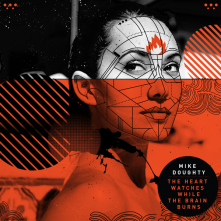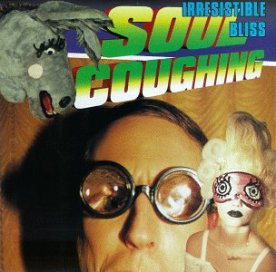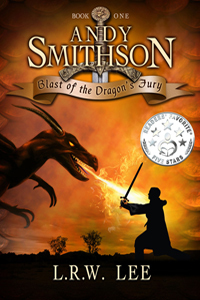
“The more he releases, the more convinced I become that Mike Doughty has wrung the most greatness from the smallest amount of songwriting diversity of any artist since the Ramones.” – a quote from my man Chris Williams, whose Soul Coughing reviews convinced me to check out the band long ago. As far as compliments go it’s about as backhanded as they come, but I’d wager that Doughty probably feels this way about himself. The man approaches his solo career the same way one might in an office job when eying a promotion; always trying to put his foot out there and expand his horizons, attempting to stand out in the densely populated world of four-chord acoustic head-swingers, either by branching out into new, unexpected areas, or by finding new ways to put his music out there. In the last decade, he’s written a musical, released a cut-n-paste EDM album, done a living room tour, sold personalized songs recorded directly onto tape recorders, ran three successful crowdfunding campaigns, written a book, released a hip-hop album, attended a songwriting camp, recorded three albums worth of Soul Coughing material, ran a subscription service, made an album of covers, and put out an EP of him literally busking in the street. All this in between a cycle of relatively normal albums and tours. Like him or not, the man’s got a pretty solid work ethic.
Ultimately I think this is done as much for him as it is for us. With Mike Doughty you always get the sense of a man who is trying to find himself, which I think was a big part of what drove this newfound obsession with reclaiming his past. The trouble is that Doughty is not a particularly sophisticated songwriter. In fact I believe this was the main complaint his Soul Coughing bandmates had about him – he was essentially rewriting the same three songs over and over again. Hey, when it works, it works. But there was a sense, particularly after 2007’s Golden Delicious, that he had hit a brick wall, and that his fans were starting to go look for something else. Lately, it seems like there’s been a concentrated effort to rid himself of those tendencies; the electronic album, the covers album, the hip-hop album, and the three reinterpreted Soul Coughing discs all came within the last six years, all efforts to either approach his songwriting in a different way, or forgo it entirely.
 The Heart Watches While The Brain Burns is his first solo album in a while without an overarching theme to it, sort of a Return to Planet Doughty, if you will. Once again it’s produced by New York hip-hop producer Good Goose, who he had been working with since 2013. This is important, since Doughty’s work always seems to be informed by the people around him. In particular he often seems to look for some wildcard element; someone who can turn his rather straightforward songs into something experimental, someone who (it must be said) can do for him what Mark De Gli Antoni did for Soul Coughing. Good Goose is not quite as out there as De Gli Antoni was; he’s more of a bedroom producer with a full library of samples and drum loops, who likes to dick around with 8-bit sounds and the like. But him and Doughty have built a connection, maybe for that very reason. While Mike is a fan of wild experimentation, it always has to take a backseat to the song itself. As much as he likes being strange, his albums always seem driven by a degree of listenability and economy.
The Heart Watches While The Brain Burns is his first solo album in a while without an overarching theme to it, sort of a Return to Planet Doughty, if you will. Once again it’s produced by New York hip-hop producer Good Goose, who he had been working with since 2013. This is important, since Doughty’s work always seems to be informed by the people around him. In particular he often seems to look for some wildcard element; someone who can turn his rather straightforward songs into something experimental, someone who (it must be said) can do for him what Mark De Gli Antoni did for Soul Coughing. Good Goose is not quite as out there as De Gli Antoni was; he’s more of a bedroom producer with a full library of samples and drum loops, who likes to dick around with 8-bit sounds and the like. But him and Doughty have built a connection, maybe for that very reason. While Mike is a fan of wild experimentation, it always has to take a backseat to the song itself. As much as he likes being strange, his albums always seem driven by a degree of listenability and economy.
This is one of those albums – 12 songs in 36 minutes, each tune memorable in its own way. There are bits of most of what he’s done in his career to this point, but in general it feels like what the follow-up to Haughty Melodic should’ve been; it’s just as poppy and full of potential singles, but with more varied and creative songwriting. This is the Mike Doughty of “Circles” and “Looking at the World From the Bottom of a Well”; super hooky, with simple chord projections, rhythmic vocals, and a beat with a hop in its step. Now living in Memphis, he’s taking advantage of some of the local musicians, showing off a little country swagger (“I Can’t Believe I Found You in This Town”), and employing far more electric guitar. But Goose dominates this album, filling it up with the sort of rhythms you would not expect from an acoustic singer-songwriter, including bits of trap, drum n’ bass, and four-on-the-floor house beats, occasionally dipping into full-on electronica (“Brian”). While Doughty’s work often has some sense of space to it, the songs on this album are thick and EQ’d up; “The Wild Creatures” has such an explosive beat to it that I cracked up the first time I heard it. Great tune though, and a welcome surprise all the way at the end of the album; I thought it should’ve been a single. Even the more melancholy stuff really swings – “Otherlands” is the sort of introspective tune with a propulsive beat that Soul Coughing used to excel at. Even the more typical stuff like “Wait! You’ll Find a Better Way” or “There Is a Way Out” just seems more forceful, as though Doughty made it a point to sing as loudly as he could.
Ultimately, The Heart Watches While The Brain Burns is a neat disc for the longtime fan, since it pulls together threads that have been spinning for a long time, and therefore ought to appeal to everyone, except the guy who thinks the only good thing he ever did was Skittish. It feels like it could slot in anywhere in his discography – in fact one impression I’ve gotten from both this and Stellar Motel is that they both feel like the sort of albums that a lot of Soul Coughing fans might’ve assumed Doughty would start making once he went solo. Hell, “Dawn/Gone” even sounds like it was written for El Oso; I wonder if he would’ve attempted it had he not made peace with his old material. Granted, it’s not the sort of album that’s likely to win him new fans; his fanbase is pretty set in stone at this point and I don’t see this album changing that. But it’s still very good, a welcome surprise from a man who seems to be full of them lately.
The last few years of Doughty’s solo career has helped to contextualize what, exactly, his problem was with Soul Coughing, the band he helmed for most of the 90’s. His autobiography, The Book of Drugs, spent literally hundreds of pages griping about his ex-band mates, not to mention essentially everyone he ever worked with. Without getting into too much detail the overarching message was this: Soul Coughing never lived up to their potential, thanks to the fact that a certain bass player, a certain drummer, and a certain sampler man had to put their own personal stamp on everything. To hear him tell it, he would come to the studio with a bunch of songs, only to watch in horror as his bandmates ruined them one by one, until they came out as the disorganized messes they wound up as on the albums. “We could’ve been the Beastie Boys”, he muses, if only they’d have listened.
For better or worse, you can try to validate that claim now, given the existence of Doughty’s “Soul Coughing re-imagined” album Circles Super Bon Bon Sleepless…, which represented a sudden change of heart from the man who had written so much bemoaning those who asked him to play the old tunes again. Simply put, it is not very good – it is Soul Coughing completely neutered, though it is still a breezy and generally agreeable listen. Now, it must be said, his second go-round at this (Live at Ken’s House) does redeem him a bit there, but either way I don’t think they could’ve been the Beastie Boys – in fact I think if they’d listened to Doughty they wouldn’t have gotten a record deal at all. Soul Coughing were one of those bands that gave meaning to the idea of “alternative rock” – you had an upright bass player, a drummer who never played a straight beat, a keyboardist whose main instrument was the sampler, and a singer who couldn’t really sing. It never could have worked without Doughty, whose simple, hook-infused tunes were what made the group tick, but their strength was always in the band, whose inventive, exploratory style gave the albums so much replay value.
Like many a great, short-lived band, the members always seemed to be at war with each other. There’s a story in the book about how they’d always be turning down each others’ amps when they weren’t looking, which in retrospect seems like a good microcosm of the band’s entire dynamic. Everyone wanted to be the standout member, or the band’s “secret weapon”. Maybe Doughty wasn’t happy with the process, constantly seeing his songs transformed into whatever the other members of the band were jamming that day, but the thing is, it worked. Ruby Vroom was a great album and a modest success, but their real mainstream breakthrough came in 1996 with their second album, Irresistible Bliss. The book described the sessions as chaotic for a number of reasons – Tchad Blake (who produced Ruby) suddenly became unavailable, and Doughty wound up hiring seasoned hitmaker David Kahne to produce, perhaps suspecting he would tamper down the wilder impulses of the other band members. The other members of the band, perhaps unhappy with the decision, wound up bringing their own people in, and I think at one point there were two separate mixes of the album. All this led to Steinberg temporarily quitting the band (which the record company had to patch up), while Doughty, growing ever frustrated, starting recording his own solo album, which eventually became Skittish. Not to mention the album cover – what the hell am I looking at there? Doughty called it one of the worst album covers of all time. I agree.
were jamming that day, but the thing is, it worked. Ruby Vroom was a great album and a modest success, but their real mainstream breakthrough came in 1996 with their second album, Irresistible Bliss. The book described the sessions as chaotic for a number of reasons – Tchad Blake (who produced Ruby) suddenly became unavailable, and Doughty wound up hiring seasoned hitmaker David Kahne to produce, perhaps suspecting he would tamper down the wilder impulses of the other band members. The other members of the band, perhaps unhappy with the decision, wound up bringing their own people in, and I think at one point there were two separate mixes of the album. All this led to Steinberg temporarily quitting the band (which the record company had to patch up), while Doughty, growing ever frustrated, starting recording his own solo album, which eventually became Skittish. Not to mention the album cover – what the hell am I looking at there? Doughty called it one of the worst album covers of all time. I agree.
That chaos certainly manifests itself on Irresistible Bliss; like the other Soul Coughing albums, there are moments of “what the hell is that doing there” and a couple songs that don’t really fit in. The production is all over the map, with the drums and bass cranked up so hard that it often overloads the speakers. It certainly strikes a contrast to Doughty’s tightly sequenced and edited solo albums, which would never house a mostly improvised half-tune like “White Girl” or “Paint”. Alas, that’s what wound up making the album such a success. The opening track “Super Bon Bon” was a bonafide hit – and how could it not be, given that the year was 1996 and the song sounded like a mashup of Cake and The Chemical Brothers. It’s a great track, the rare single where the hook is more in the bass groove and the drums than it is in the actual song – Doughty’s recent attempts to rework the tune shows that there’s just not much there. Certainly there’s a great chorus (one that Doughty accused Ricky Martin of stealing, and you know what? He’s right), but it never would’ve been a hit without Gabay, who comes up with an incredibly thick beat that carries the whole song.
That’s the dynamic at play here – Doughty’s songs are fine, but the best results come when the band finds a way to dress ’em up and turn them into something special. “Soft Serve” is a great example of that, where the rhythm section comes up with a propulsive beat for Mike to walk over during the chorus, taking advantage of the particular cadence in his voice. “Lazybones” is another, with a deep, despondent groove that matches the song’s tale of addiction and loneliness, with a distorted symphonic bit that really drives it home in the end. Even “Soundtrack to Mary”, the album’s most radio-ready tune, mostly works thanks to the band playing a bit behind Mike, creating the sort of double-groove that makes you get all jittery. Though Mike’s reworked these tunes several times, there’s a certain magic here that he wouldn’t be able to recreate without getting these particular people on board. A number of these tunes just wouldn’t work at all without them – in addition to “Super Bon Bon”, you’ve got “4 Out of 5”, “Disseminated”, “White Girl”, and “Paint”, driven by wild, free-association rapping and/or clever sampling. I wonder if Doughty was on board with this stuff making the cut over the more fleshed out songs that wound up on Skittish (I’m guessing those last two irked him a bit). Granted, they don’t quite get it all right, as the album sorta falls apart in the end – “Sleepless” and “How Many Cans?” not only obscure the tune too much, they’re so concentrated on the low frequencies that it can be difficult to hear what’s going on.
For those keeping score, seven of the twelve tracks are great, mostly those in the first half – “Super Bon Bon”, “Soft Serve”, “Soundtrack to Mary”, “Lazybones”, “4 Out of 5”, “Disseminated”, and “The Idiot Kings”. The rest is kind of hit or miss, half entertaining and half ignorable, but even still, there are too many interesting musical personalities on display for it to ever get boring. The fact that the album is not particularly song-heavy highlights what the group is capable of – “White Girl” may be sort of a throwaway, but if it weren’t there you’d probably never get to hear Yuval Gabay play quite like that. Doughty’s wild nonsense rapping may be gimmicky but it was a big part of the band’s appeal back then. The 90’s had a ton of bands that got by because they did things differently and blurred the lines of genres, and no band epitomized that better than Soul Coughing did. Was it rock? Jazz? Hip-hop? Electronica? Not even the band members knew, which is why Doughty coined the term “Deep Slacker Jazz”, as the question came up so often in interviews. What kind of music do you make? Just whatever comes out when you put these people into the fishtank.
That’s the element that Doughty’s solo work tends to miss, for better or worse. Certainly there is some attempt to bring people on board who take his music in a direction he wouldn’t have on his own, which is why he’s been working so extensively with the Goose lately. But in the end the albums are all him; every decision carefully vetted, every track focused and centered. Ultimately this makes his albums plenty listenable, if inessential. Soul Coughing may have been all over the map, but there isn’t another band on the planet quite like them. Still, given the fact that Soul Coughing nearly killed him, its nice to see him still so prolific 20 years later. The Heart Watches While the Brain Burns deserved more attention than it got, though sadly I think the ship has kind of sailed on the idea of him getting any sort of mainstream attention anymore. I hope I’m wrong about that though. As critical as I’ve been of the guy, I somehow can’t stop myself from buying his albums. After so many false starts and leaps of faith, it feels like he’s finally hitting that stride.
Advertisements Share this:




